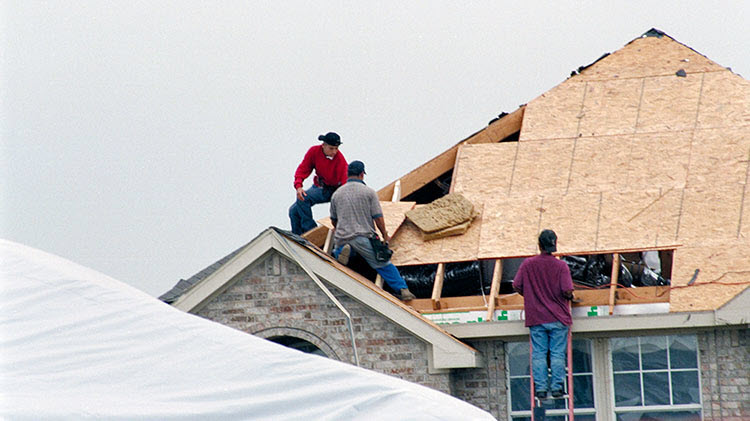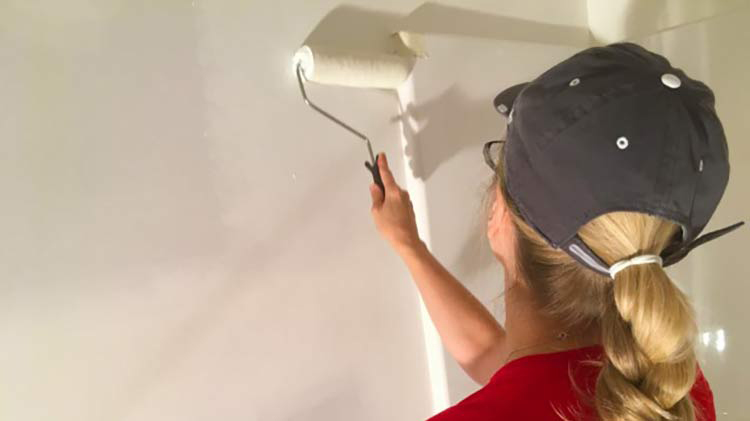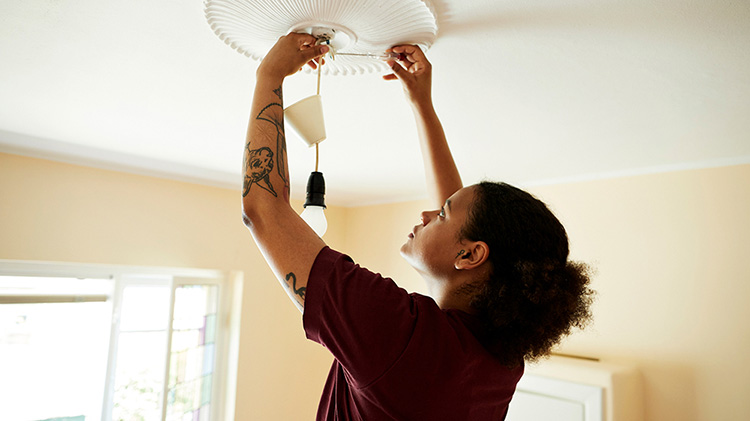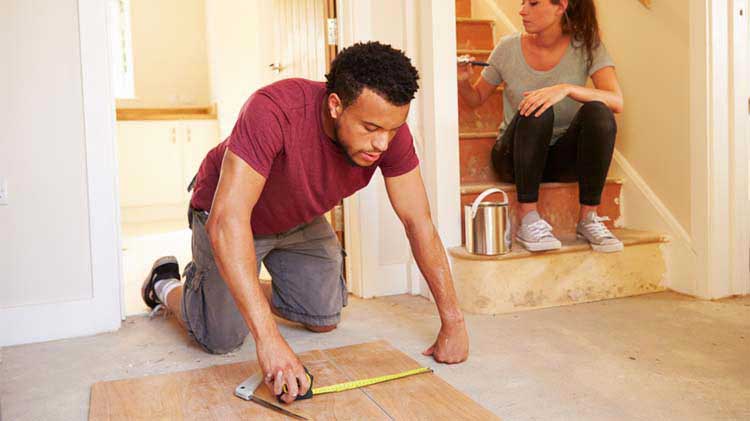Help protect yourself from contractor fraud
Contractor fraud may appear in a variety of ways. Help be more prepared by learning about the signs of a potential scam and strategies to help protect yourself.
When natural disasters like tornadoes, hurricanes and wildfires strike, the aftermath can contain an added layer of concern for homeowners needing repairs: Dishonest contractors. These scammers prey on vulnerable homeowners, offering substandard or defective repair work. To help protect yourself, your finances and your home from these fraudulent contractors, it’s crucial to recognize the warning signs of a potential scam.
What is a contractor scam?
Contractor fraud occurs when a certified contractor, or an individual posing as one, deceives a client about the contracted work. This deception may include misrepresentation of materials, labor, qualifications and costs, often resulting in overcharging for services.
Trust your gut. If you don't have a good feeling about the contractor, don't use them. Watch out for the following tactics.
Contractor scam tactics
Unsolicited services
A contractor who stops by unannounced and gives you an unsolicited estimate for repairs — such as driveway sealing, chimney rebuilding or roof repair — can be a red flag.
Out-of-state contractors
Some contractors, operating out of unmarked, out-of-state vehicles, follow storms and other catastrophic events to target homeowners with damaged property. These individuals may be difficult to contact if problems arise, so be wary of those with no local reputation or company identification. Instead, choose a local contractor with a proven track record.
No licenses or permits, lack of insurance and references
To be licensed, many states require contractors to meet specific requirements. Reputable contractors should be able to provide their license or license number from the state Contractors Board. Since licenses could be inactive, it’s important to verify them.
Contractors should be able to provide proof of insurance. If they don’t, and you hire them, you could be liable for any injuries or damages that occur. Consider requesting proof of insurance.
When selecting a contractor, research their reputation and previous work. Ask for references and check online sites for reviews like Yelp and Google. Consider using a service, like HomeAdvisor or Angi, to help find and compare multiple contractors. Additionally, the Better Business Bureau (BBB) can provide information about a contractor’s rating and accreditation status. If a contractor is unable to provide references, consider looking elsewhere.
No written contract
A written contract detailing all aspects of the work that will be completed is essential. This contract should clearly outline the scope of the project and the agreed-upon terms. Be wary of contractors who are hesitant to provide a written agreement. Before work commences, ensure that the contract accurately reflects the project details and that both parties have signed it.
Full payment requested upfront
Think twice if the contractor requests full payment upfront. Some contractors may require a partial payment to get started with the work. Payments should be made based on the contract schedule. To help avoid construction fraud, don’t make final payments or sign a completion document before the work is finished.
Lower than usual estimates
Sometimes called a low-ball offer, some contractors will offer a quote for the work below market value to entice a client to grant them the contract. After getting the job, the contractor then charges add-on fees to increase their profit margin, often while providing substandard and/or insufficient work in the process. Be cautious of a price that seems too good to be true.
Running into unexpected problems
Be wary of contractors who claim unforeseen issues will require expensive additional work. These alleged problems can range from foundation damage to water damage, termites or other job-related concerns. Investigate such claims thoroughly before agreeing to any additional costs.
Leftover materials offered
Be careful of contractors offering significant discounts and claiming they can use "leftover" materials from a previous job. These materials may be substandard or illegally obtained. Using inadequate materials can result in dangerous outcomes. Consider inspecting materials used in your contracted work and be wary of offers involving leftover materials.
What to look out for after a contractor begins a project
- Subcontractor calls for payment — subcontractors may contact you directly for payments regarding completed work.
- Unexpected expenses — while some unexpected expenses are normal, frequent or costly issues may warrant a second opinion from a home inspector or another reputable contractor.
- Lack of activity — when no work is being done on the job site during peak working hours.
- Poor communication — if your contractor stops responding to calls or showing up, contact your local BBB.
- Low-grade materials — verify that the materials used match what was listed on the estimate.
Ways to help protect yourself from shady contractors
Here are some tips to consider when hiring a contractor for home repairs, renovations or weather damage recovery:
- Obtain multiple quotes. Compare quotes from several local and established businesses.
- Take your time. Don’t rush into a decision.
- Verify references. Check professional affiliations, BBB reports and references from past clients.
- Check credentials. Confirm that the contractor has up-to-date licenses and insurance coverage.
- Get estimates in writing. Insist on written estimates that include contact information, an outline of the work with the cost breakdown and key dates. Remember Federal Trade Commission (FTC) regulations may allow you to cancel a contract within three business days under certain conditions.
- Agree on a payment plan. Stagger payments throughout the project, with the final payment contingent upon completion and inspection of the work.
- Track project costs. Monitor expenses to verify they align with the estimates provided. Request an itemized list of costs for better accountability and budget control.
- Get a receipt. Obtain a receipt as proof of full payment after the work is completed.
The National Association of Home Builders offers additional tips for hiring a dependable professional contractor. Before you hire any contractor for storm-related repairs, consider contacting your insurance agent to discuss your insurance coverage.




